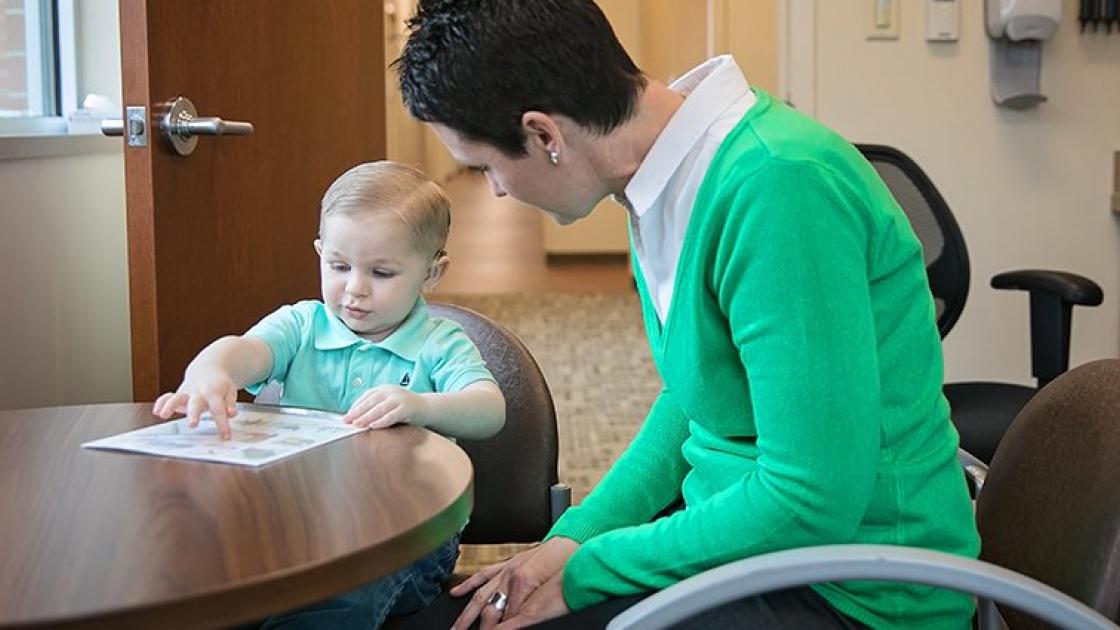
4 research-based tips to prevent ear infections
An ear infection can be extremely debilitating. Of course, most people associate this condition with young children—perhaps for good reason. Amazingly, 5 out of 6 children will have at least one ear infection by the time they turn 3 years old! But older children and adults can get ear infections too, and if left untreated, these can lead to long-term consequences including pain and hearing loss.
Additionally, while they can occur at any time of year, ear infections tend to be more frequent in the fall and winter months (cold and flu season). To protect yourself and your loved ones against ear infections, our pediatric primary care team at SIU Medicine urges you to follow a few simple steps.
But first, let's talk more about what happens when you have an ear infection.
Causes and symptoms of ear infections
An ear infection (known in medical terminology as otitis media, or OM) occurs in the middle ear, which is the air-filled cavity right behind your eardrum. It develops when a bacteria or virus gets into the ear and causes fluid to build up and press against the eardrum.
Other parts of the ear, including the inner ear and outer ear, can become infected too. However, middle ear infections are generally more common, especially seasonally. Symptoms of ear infections include:
- Fever
- Earache
- Difficulty hearing
- A sense of "fullness" in the ear
- Fluid draining from the ear
Very young children with ear infections may not be able to tell you what is bothering them. In this case, you can look for telltale symptoms that may indicate an infection is occurring. These symptoms include:
- Trouble sleeping
- Tugging or pulling at the ear(s)
- Increased or unusual fussiness and crying
- Clumsiness or problems with balance
- Decreased responsiveness to sounds or voices
- Decreased appetite and drinking liquids
Understanding the signs and symptoms of an ear infection is important. This is because the faster you recognize a potential ear infection; the sooner you can seek treatment (which may include oral medications like antibiotics, medicated ear drops and at-home symptom relief strategies).
What's even better than treatment? Prevention—which is possible through a few simple steps.
4 ways to reduce your risk of ear infections
- Avoid colds by washing hands, and your kids’ hands, thoroughly and using good hygiene. Be sure to teach your children proper hygiene techniques, too.
- Don't smoke. Smoking weakens your immune system and makes you more susceptible to infections, and also makes it harder to recover from them. If you smoke, quit—and if you don't smoke, never start.
- Adults should avoid stress. In times of stress, our bodies release stress hormones like cortisol. Research shows that high levels of these stress hormones can change the dynamics of the fluid in our ear. Additionally, stress is another factor that weakens your immune system, making you less able to fight off infections.
- If you have allergies, take the necessary steps to manage them. Stay away from potential triggers by closing windows, cleaning air filters, keeping your house and yard tidy, and consulting with an allergist if necessary to make sure you understand what's triggering your allergic reactions.
At SIU Medicine, our pediatric primary care and family medicine physicians are committed to providing the highest quality care and ensuring optimal outcomes for our patients. If you have concerns about recurring ear infections in yourself or your child, contact our primary care team today at 217-545-8000.




